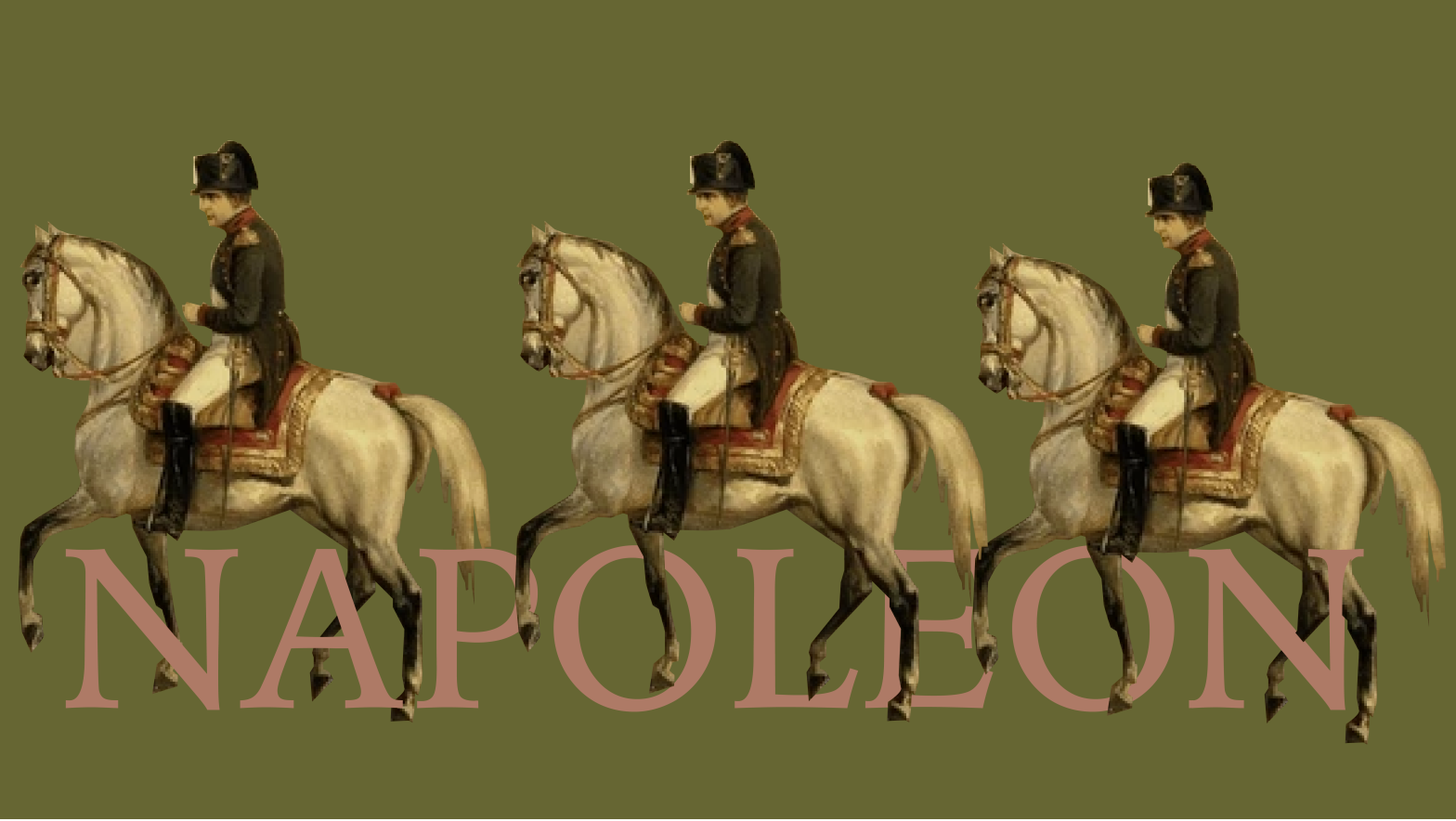When I watched Napoleon, Ridley Scott’s two-and-a-half-hour epic chronicling the life of its eponymous main character, one thing stood out to me–Napoleon himself seemed rather boring.
Juxtaposed alongside the epic, macabre Napoleonic Wars, the Corsican emperor was portrayed as doltish and dull. Joaquin Phoenix’s portrayal of Napoleon pared back the charisma and grandeur we typically associate with great leaders and instead left us with a robotic, paranoid emperor who seemed to stumble into the command of France.
While not without merit, this portrayal seemed to forget why we study him at all. Despite his humble Corsican origins and diminutive stature, Napoleon was able to charm, inspire, and command his way into reshaping Europe. According to Princeton historian David Bell, Napoleon used his “charismatic authority to claim unlimited, untrammeled power.” Whether you see him as a praiseworthy reformer or proto-fascist dictator, Napoleon was certainly not uninteresting. It is difficult to see this personage in Ridley Scott’s film.
To downplay the figure of Napoleon seizes upon a current zeitgeist in academia. Since Thomas Carlyle’s essays in the mid-19th Century, two notable theories on what drives the course of history have been at odds with each other. The first, the Great Man Theory, holds that history is shaped by great figures: Napoleon, Genghis Khan, Caesar, and so on. It is the makeup of these leaders that allows them to make profound, meaningful change. The second, which we can call the ‘institutionalist’ theory, holds that institutions, technological changes, and broader social forces drive history.
The Great Man Theory is out of fashion right now, and the institutionalist theory is in style. The reasons for this are not entirely unjustified. Much of the course of history—perhaps most of it— has been driven by a complex milieu of social forces. The Industrial Revolution and Enlightenment are almost certainly behind the overwhelming growth in Gross Domestic Product (GDP), standards of living, and rate of technological progress in the last 300 years. Europe’s lapse into the ‘Dark Ages’ was driven not by one man, but by the steady deterioration and ultimate collapse of the Roman Empire and its accompanying institutions. The American political system— one of many contributing factors in the U.S.’s predominance during the last century—was designed specifically to restrain great men through checks, balances, and elections.
Even so, I would posit that the pendulum has swung too far. A singular obsession with institutions and social forces can create a form of tunnel vision that underplays the extent to which people can reshape history through their force of character.
The relationship between the great figures of history and social forces is complex. The greatest figures are molded by and operate within the institutions of their day, yet can also transcend them. Take Otto Von Bismarck. His priorities were molded by his background as a Junker, a term used to describe members of Prussia’s aristocracy, and the general tide of liberalism sweeping across Germany. He instituted his great changes within the context of broader societal movements, at some points allying with conservatives and at other points harnessing liberalism to further his priority of building a German nation-state.
What made him great was his ability to redirect these social forces toward his goal. In his own words, he ‘steered the ship of history’ towards his desired outcome. The ability to ‘steer the ship’ of history – redirecting existing social forces and momentum to a new end – is a common trait held by many great figures of history. Individual figures, while operating in their contemporary context, can also fundamentally change it.
The relatively inconsequential kingdom of Macedon would have never conquered Greece, the Middle East, and knocked on the door of India without Alexander the Great’s personal charisma and ability to command his troops. Mongolia would have never reshaped the continent of Eurasia without Genghis Khan’s military genius and ruthlessness. And yes, France would have not emerged out of its revolution to remake the continent of Europe without Napoleon. I do not want to put Napoleon on a pedestal —he brought death and destruction to hundreds of thousands of people. Likewise, we should prevent ourselves from viewing great figures as overly simplified archetypes of greatness that lack the struggles, wants, and complexity of real humans. The romantic angle of Napoleon in Ridley Scott’s film does add an extra layer of color to his figure, outlining how his relationship and vulnerability at home influenced his drive for greatness. Nevertheless, it is important not to underestimate or leave out the personality traits that enable some people to tip the needle of history. This is a lesson both Ridley Scott and the field of historiography may want to listen to.

